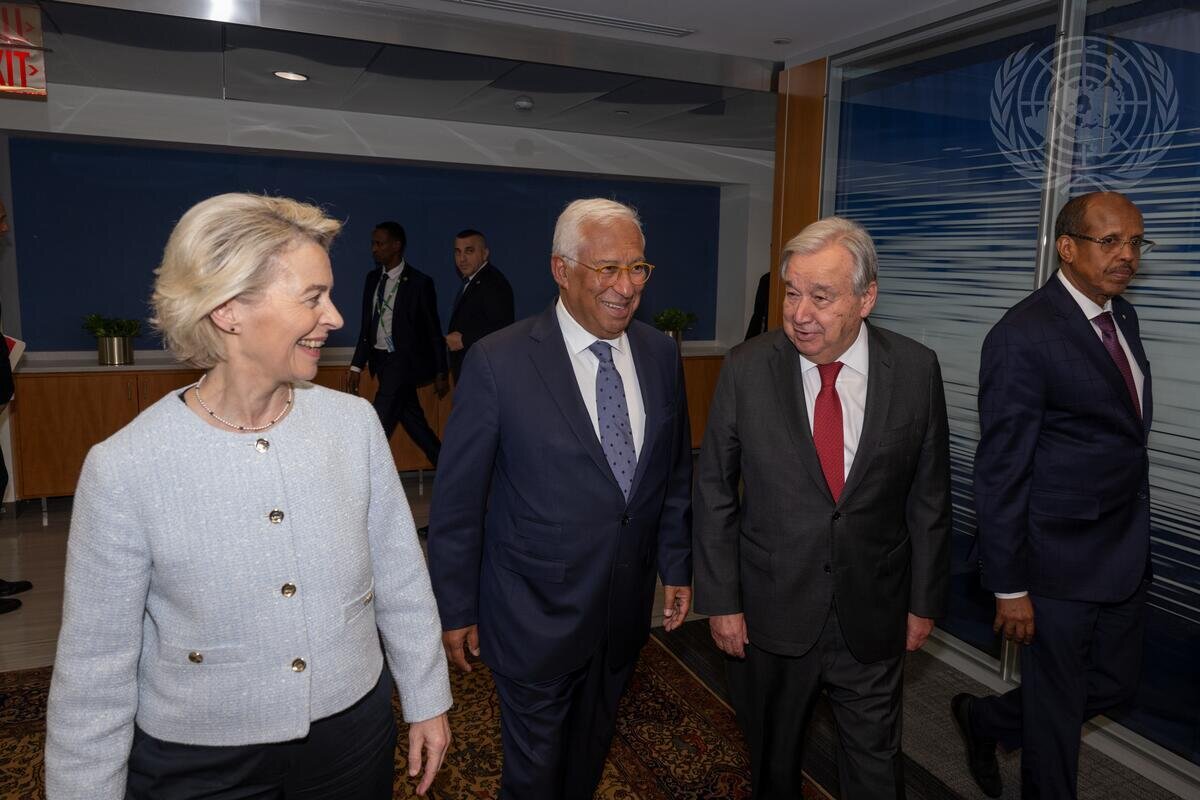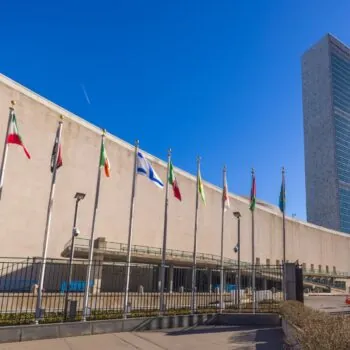Consensus by its very nature is fragile and needs to be sustained.
This is especially the case when dealing with something as politically sensitive as a global transition away from fossil fuels to clean energy.
Urgent attention is needed to sustain the UAE consensus to triple renewables and double energy efficiency by 2030 and transition away from fossil fuels and to push back on aggressive diplomatic pro-fossil fuel campaigning by parties (including the US) seeking to delay the inevitable transition to clean energy.
Support for the energy transition
Through the noise and geopolitical chaos, the last months has however seen strong signals come out underlying the resilience of this global energy consensus. A poll among business executives in 15 major economies, including the US, found that 97% support the transition away from fossil fuels to renewable energy, with 78% advocating for this to happen within 10 years.
At the IEA and UK hosted energy security summit in London or the more recent Clean Energy Ministerial in South Korea, the vast majority of countries declared their support for an accelerated transition.
A statement by leaders from 17 countries and the European Commission, including the UK, Brasil and South Africa published ahead of UNGA in New York this week is further testimony to delivery against this global consensus.
This statement contains welcome recognition that in facing down the existential threat of climate change, clean energy deployment is the solution that will deliver energy security and enhance growth for citizens.
It provides a coordinated response not only between the developed and developing countries but also between the leading international diplomatic alliances working to coordinate faster action.
And it correctly identifies that more action is needed to mobilise finance towards developing economies to redress the current imbalance in the transition.
And it is far more than rhetoric
Two thirds of the world is already past peak fossil fuels in final energy demand and nearly half in power generation. Coal continues to be phased out in most OECD countries with mainland Spain and Italy planning to be coal-free this year. The manufacturing capacity of solar PV and batteries to deliver on the IEA’s net zero scenario is already in place.
However, we need to go further and faster. The statement is short on signatories from countries who face the greatest challenge in transitioning from coal and fossil fuels in their economies.
And there is insufficient detail in how greater finance will be mobilised behind the energy transition on the road to Belem.
We must also remain clear-eyed on the limited role of sustainable fuels such as biofuels, which was in fact not part of the COP28 consensus, alongside the far greater mitigation potential for renewable energy and energy efficiency deployment.
Start of a diplomatic push
This leaders’ statement must now serve as the start of a diplomatic push to secure the support of more leaders, in particular from India, Indonesia and China, to send a high level message of unity, determination and resilience on the delivery of the clean energy transition ahead of COP30 in Brasil.
This coalition of countries must continue to emphasise that clean energy is the fastest growing sector globally and providing unprecedented opportunities to drive growth, improve competitiveness, increase our domestic and collective prosperity and security, and to create millions of new jobs.
They should also recognise the critical role electrification plays in improving energy access and affordability particularly in developing countries, by building resilient and reliable energy systems enabling consumers and industry to benefit from the rapidly expanding build out of ever cheaper renewable power.
Such a diplomatic push would fit well with, and bring focus to, the Brasilian Presidency’s activation of the so called ‘action agenda’, which seeks to elevate the plethora of initiatives and announcements happening at COPs, outside the formal negotiating space. Collectively these initiatives can showcase delivery is happening and help COP negotiators agree on a credible, negotiated response to the near-certain delivery gap that will emerge when all NDC’s have been submitted.
Demonstrating real proof points
It is particularly essential for leaders to be able to demonstrate that investments are happening at scale in the places that need them most, demonstrating real proof points the mobilisation of new finance routes being explored within the Baku to Belem roadmap.
This includes highlighting the progress that has been made with existing Just Energy Transition Platforms such as in South Africa or newer Country Platforms. It also means being able to point to credible steps being taken to overcome barriers encountered so far, such as improving access to private finance through a scaled-up use of guarantees and by scaling up public finance announcements such as the Singapore led FAST-P.
‘When others withdraw, we double down’ is how EU’s Ursula von der Leyen announced a new Clean Investment and Trade Partnership with South Africa earlier this year. It now needs to become the rallying cry of the overwhelming global majority who choose clean over fossils at COP this year.


